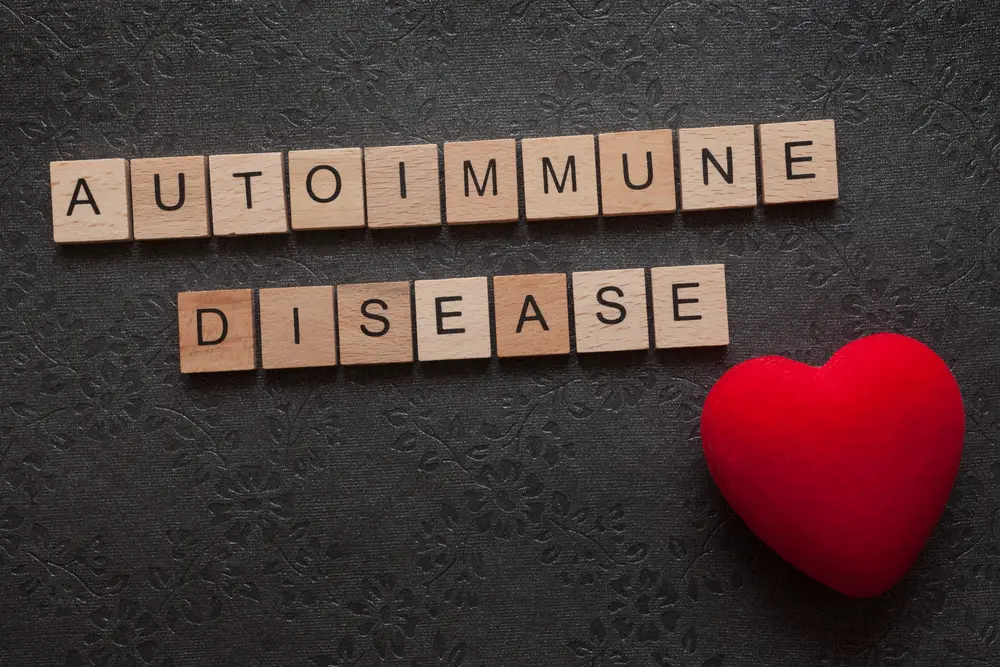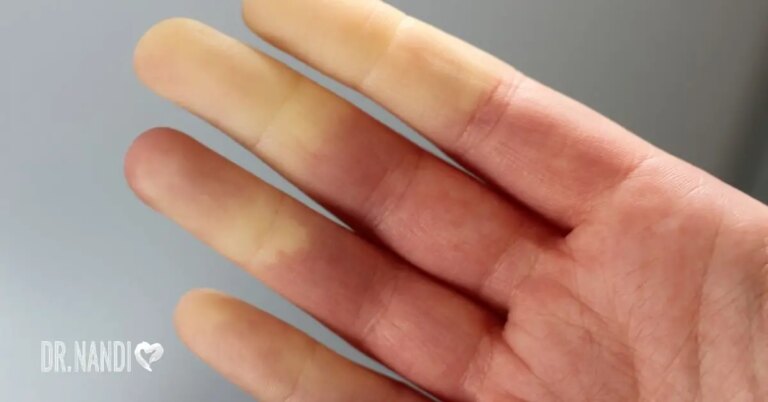Autoimmune diseases result from the body’s immune system attacking its healthy cells and tissues, causing chronic and sometimes severe conditions. Although there is no known cure for autoimmune diseases, various supplements can help manage symptoms and strengthen the immune system. Find how you treat autoimmune disease in this article.
What is Autoimmune Disease?
Autoimmune disease happens when the body’s natural immune system cannot differentiate your own cells and foreign cells and causes your body to mistakenly attack normal cells. Over 80 different types of known autoimmune diseases can affect a wide range of body parts.
What Are Common Autoimmune Diseases?
Common autoimmune disorders include:
- Diabetes (Type I)
- Graves’ disease
- Inflammatory bowel disease
- Multiple sclerosis
- Psoriasis
- Rheumatoid arthritis
- Scleroderma
- Systemic lupus erythematosus
What Are the Symptoms of Autoimmune Disease?
Common symptoms of different autoimmune diseases include:
Diseases of the joints and muscles:
- Muscle aches and pains.
- Joint pain, stiffness, and swelling.
- Muscle weakness.
- Inflammation.
Diseases of the digestive tract:
- Bloating.
- Constipation.
- Abdominal pain.
- Acid reflux.
- Nausea.
- Food sensitivities.
- Blood or mucus in the stool (poop).
Diseases of the skin:
- Rashes.
- Itching.
- Dry eyes.
- Dry mouth.
- Inflammation.
- Hair loss.
- Dry skin.
Diseases of the nervous system:
- Dizziness.
- Headaches.
- Anxiety and depression.
- Confusion and difficulty thinking.
- Blurry vision.
- Insomnia.
- Memory issues.
- Migraines.
- Lightheadedness.
- Numbness and tingling.
Other diseases:
- Fatigue.
- Pain.
- Fever.
- Chest pain.
- Swollen glands.
- Weight gain or loss.
- Rapid or irregular heartbeat.
- Shortness of breath.
- Temperature sensitivity.
How do you treat autoimmune disease?
In general, there are no cures for autoimmune diseases. Every case is unique, so no one-size-fits-all approach to managing symptoms exists. However, symptoms may be controlled through a wide variety of treatments.
Best treatments for autoimmune diseases
Historically, there have been different kinds of treatments, including:
- Dietary supplements (for more information, please also check our blog)
- Painkillers, such as ibuprofen, acetaminophen or codeine
- Anti-inflammatory drugs to reduce inflammation and pain
- Injections, such as insulin for diabetes
- Corticosteroids reduce inflammation, especially in acute flares
- Immunosuppressant drugs reduce the activity of the immune system
- Sleeping medications
- Surgery, like in the case of Crohn’s disease, to treat bowel blockage
- Skin treatments
- Physical therapy to encourage mobility
- Acupuncture
- Chiropractic treatments
Natural remedies for autoimmune disease
While it depends on your circumstances and condition, several natural remedies have been shown to help deal with symptoms of autoimmune diseases.
Many autoimmune disorders are connected with natural triggers, so adjustments to your diet can make a big difference. One of the biggest and best natural remedies is a healthy, nutrient-rich diet. A diet rich in antioxidants can help reduce inflammation and prevent or reduce flare-ups. You can check our collection of healthy recipes for inspiration.
If you can’t get enough of these essential nutrients through your diet, many supplements, such as immune boost supplements, help you on your path to remedy. These can give you the required antioxidants and immune boosters in a handy capsule.
Another way to reduce the onset or flare-up of autoimmune disorders is to reduce stress. Stress is the cause of a lot more health problems than many people think, and the strain it puts on your immune system is significant. Reducing stress can bring immediate relief by allowing your body to focus on essential things, like fighting diseases. Two excellent ways to achieve this are through yoga and meditation. These relaxation methods can reduce stress and restore balance in your body.
Treating autoimmune disease with diet and lifestyle changes
The average North American diet is heavy on fried, processed, and fatty foods with a lot of sodium and sugar. This highly caloric and unhealthy diet increases inflammation, which can cause many problems and lead to autoimmune diseases forming or flare-ups.
The following foods have been connected with inflammation and should be eaten in small quantities or avoided completely:
- Processed and fried foods
- Sugars (especially high-fructose corn syrup)
- High sodium
- Alcohol
- Red and processed meat
- Refined grains
- Food additives
If you are worried that reducing meat and dairy consumption results in insufficient protein, there are many other natural sources, like legumes, oats, nuts, seeds, and much more.
Reducing inflammation-inducing foods can not only lead to a reduction in your symptoms but also a decrease in your medication doses, making this a win-win situation.
Some people also have food triggers that can cause flare-ups. Specialists recommend trying an elimination diet to determine if any food triggers are present and what they are.
There also are many lifestyle habits that you can form not only to help you with battling autoimmune diseases but also to help you improve your overall health. These habits include:
Regular exercise
Especially low-impact activities like swimming or cycling can significantly and almost immediately affect your general health. Many autoimmune diseases can occur more frequently in those that are overweight or obese so regular exercise can help more than just your waistline.
Adequate sleep
A lack of sleep can put significant strain on your body and can harm your immune system. Sleep deprivation has been linked to chronic inflammatory states, which can increase the risk of autoimmune diseases. Getting adequate and restful sleep is critical for your body to have the time to focus on balancing.

Managing stress
Reducing stress is a critical factor when it comes to treating autoimmune diseases. It is the cause of many health problems and is known to weaken your immune system, making it more susceptible to diseases. Yoga and meditation have significantly affected autoimmune diseases and can help your body in other ways.
Try to reduce stress as much as possible and avoid stressful situations.
Seeking out social support
Dealing with an autoimmune disease can be very challenging, even more so on your own. Seek out social support with friends and family or groups. They can be great resources for tips and tricks to deal with autoimmune diseases that you could benefit from.
Avoiding alcohol, tobacco, and other drugs
Alcohol, tobacco, and other drugs can have devastating effects on your body. They can cause inflammation and weaken your immune system, significantly increasing the risk of flare-ups.
When to see a doctor?
Whenever you notice symptoms you have not experienced before, it is always recommended to see a doctor. In many cases, conditions are much easier to treat when diagnosed early, not just autoimmune diseases. Especially if you have been healthy and suddenly feel joint stiffness, fatigue, or other symptoms for no apparent reason, it should never be taken lightly. Your doctor may know the cause or look closer to investigate and run tests to identify the source of the issues.
Finding the right healthcare provider for autoimmune disease treatment
It is vital to find the right healthcare provider to treat autoimmune diseases. Speak to your doctor, and they can refer you to trusted specialists for your condition. To learn more about how you can treat autoimmune disorders, subscribe to Dr. Nandi and his fabulous newsletter today or contact him with any questions!
Frequently Asked Questions
What is the best treatment for autoimmune diseases?
A healthy, nutrient-rich diet is an excellent way to treat the symptoms of autoimmune diseases. The same goes for reducing and avoiding stress, and regular exercise.
Can you reverse autoimmune disease naturally?
While there is no known cure for autoimmune diseases, some people may be able to manage their symptoms and even put their condition into remission through lifestyle modifications and natural therapies. However, the effectiveness of these approaches may vary from person to person, and it is crucial to work with a healthcare professional to develop an individualized treatment plan.
What is the main cause of autoimmune disease?
The exact cause of autoimmune diseases is unknown. There are different theories, such as microorganisms or drugs triggering your immune system or genetic predispositions.
How do doctors treat autoimmune diseases?
The treatment of many autoimmune diseases is very dependent on the individual situation because there often is no one-size-fits-all approach. Standard treatment options are anti-inflammatory drugs, corticosteroids, pain-killing medication, physical therapy, or immunosuppressant drugs.
How to prevent the autoimmune disease from worsening?
It depends on the individual case. Eating a healthy, balanced diet, reducing stress, and exercising regularly can help.




















